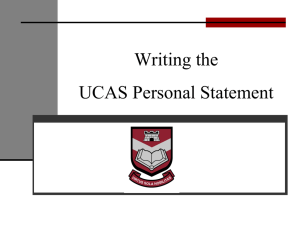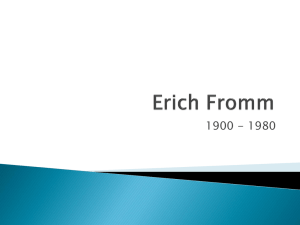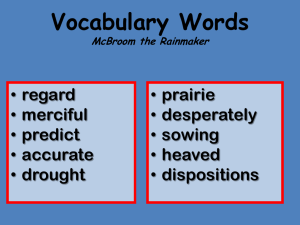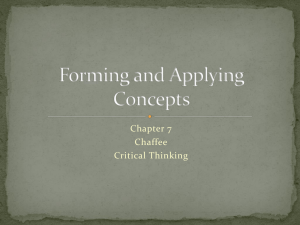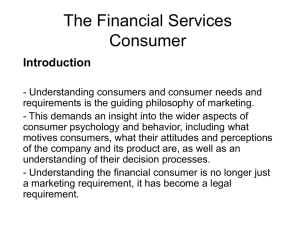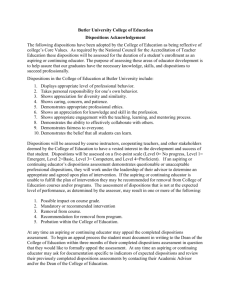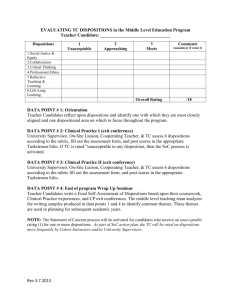Being a Graduate in the Twenty-first Century
advertisement
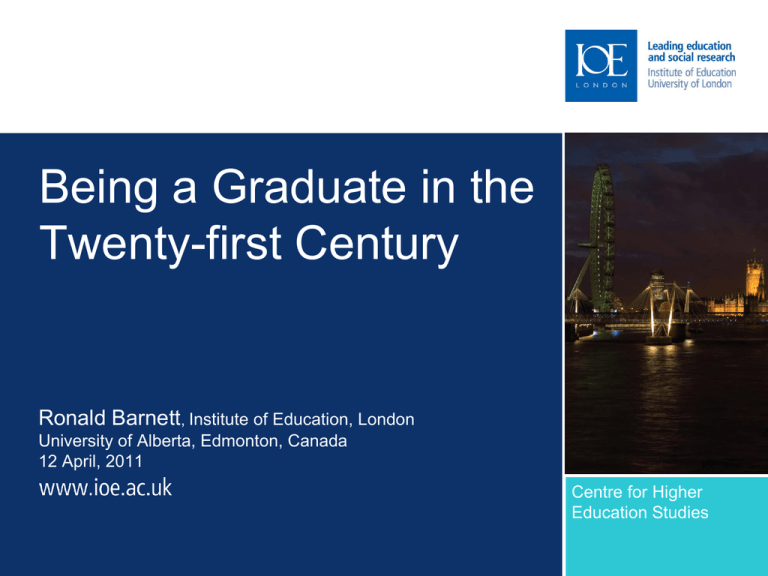
Sub-brand to go here Being a Graduate in the Twenty-first Century Ronald Barnett, Institute of Education, London University of Alberta, Edmonton, Canada 12 April, 2011 Centre for Higher Education Studies Context – and Emma’s tale A present context: the unemployed graduate ‘Last year, I created a new society for the University, for my course. That involved quite a lot of responsibility and taking control and I’ve never been in that, sort of, leadership position before. … the society stuff definitely helped my degree – if no other reason than just feeling more accessible to the lecturers and the tutors. ‘I’m [also] an artist .. I tend to do [large] landscapes in acrylics. Q Do you see that as something quite separate or do you think it spills over in any way? ‘Yeah, I think it does in a way because I was thinking about how long it takes me to do the paintings, I think that’s, kind of, patience and the motivation to do it because there’s times when I think, I just want to give up.’ 2 Beginning questions So from these two starting points: Just what is it to be a graduate in the C21? Just what might we hope for from our students? What might they want of themselves? How might we understand ‘career’ now (eg amid (worldwide) recession) What is it to learn in a university? What are the responsibilities of a university towards its students? 3 Changing answers Higher education - built successively around the themes of: - knowledge/ understanding (‘initiation’) - skills (‘employability’) And now emerging? - wellbeing (‘therapy’) - citizenship (‘the global citizen’) 4 The twenty-first century • • • • • Challenge Change Uncertainty Complexity/ supercomplexity Division – differences – of values, of resources, of perspectives • Global dimension 5 A student’s story ‘ … I had no … awareness of my own ability, so when you get an inspiring teacher that has faith in you, or helps you understand a topic, then, you know, it’s amazing ‘… you get excited … it makes you want to know, say, if it’s about a particular topic, then you want to go and know more about it, you want to find more … and that way you end up learning more. ‘… if a teacher inspires you in a subject, then you are going to pay a lot more attention, feel that drive to get involved in a way.’ (4th yr student, post 92 university) - A continuing pedagogical challenge 6 Students as Global Citizens • • • • • • • • 7 A care/ concern for the world A sense of interconnectedness Not living in one’s own world Helping to bring about a better world (cf ‘wisdom’) A project of ‘engagement’ Implies first-handedness; genuine (critical) thought & action Impact on curricula And on opportunities while a student Forms of learning • • • • • Sense that learning takes place in multiple sites Even for the student Is anything special about the student’s academic learning? Lifewide learning – horizontal learning Lifelong learning – learning through time (We’ll come back to these matters in a moment.) 8 Moving on ‘ Overall, the four years I spent at [university] have been tiring and frustrating at times but mainly exciting, challenging and immensely rewarding … I have graduated a different person from who I was when I entered … better equipped for all aspects of life’. (female engineering student) ‘It’s been a huge learning curve and building process as a person. I am completely different from how I was in the first place.’ 9 The ideas of ‘graduate attributes’ & ‘graduateness’ • (So) the world presents human being with considerable challenges – technical, social, communicative, personal • We look to graduates esp to be human beings who can live purposively in the face of these challenges • Even to be exemplary human beings • Such a world requires, in the first place, neither knowledge nor skills but dispositions and qualities of certain kinds 10 Dispositions for a world of challenge • • • • • • 11 A will to learn A will to engage A preparedness to listen A preparedness to explore A willingness to hold oneself open to experiences A determination to keep going forward Qualities for a world of challenge • • • • • • • • 12 Carefulness Courage Resilience Self-discipline Integrity Restraint Respect for others Openness Dispositions and qualities compared • The dispositions are necessary; the qualities have a degree of optionality in them • Hence, just a few dispositions; but many qualities • The dispositions enable one to go forward • The qualities colour that forward movement; give it ‘character’ 13 The (higher) educational significance of the dispositions and qualities • The dispositions and qualities are concomitants of a genuine higher education • Curricula and pedagogies could nurture them • But often fall short • Students are denied curricula space, and pedagogical affirmation • But the dispositions and qualities (above) are logically implied in a ‘higher’ education. 14 Nurturing the dispositions and qualities – the linguist’s tale I’ve always had a huge passion for languages. But coming to [x university], I found the French and the Italian departments very different, and I did start to feel a bit bitter towards French. I wasn’t enjoying that any more. I loved it at school more than Italian. I found the French department very rigid … I did feel like I was back in school, but not in the sixth form … I didn’t feel very free to express myself in the lessons. With the Italian department, we all sit around a big table or chairs without tables in front. There would be a lot more interaction … It was more friendly, just a liberating atmosphere.’ 15 The idea of a career • The idea of ‘career’ implied steady progression in a particular (and challenging) field of work • And that there were clear boundaries between work and non-work • Both of those axioms have to be ditched • Against the considerations here, a ‘career’ becomes the continuous public working out of one’s possibilities in an uncertain world • It is the sedimentation of the dispositions and the widening and strengthening of the qualities • In particular, the will to learn (disposition) and courage and openness (qualities) are paramount 16 Coping with complexity ‘(beginning the student journey) is [an entry into] a scary, exciting and fascinating world … We need … self-belief to survive and prosper … I remember thinking … this is amazing, exciting, exhilarating and downright terrifying … Working with a complex world is … about … not giving up when you feel overwhelmed …’ ‘… What’s fascinating about Alison’s courses is the amount of panic, you know, that surrounds the essays and I felt it personally … It was a very, very scary thing to do because … there were no right answers.’ 17 Conclusions Becoming clearer about being a graduate in the C21 calls for a sense of the world in which graduates find themselves & of the responsibilities graduates have in the world - to themselves and to others and even to the world itself In turn, the idea of ‘career’ diminishes But there arises larger questions as to the relationship between graduates and the wider world In turn, arise profound issues over curriculum & pedagogy & in turn, arise qs as to the responsibilities of universities And so arises the question of the university in the C21 It is that, no less, that lies before us in these considerations. 18 Institute of Education University of London 20 Bedford Way London WC1H 0AL Tel +44 (0)20 7612 6000 Fax +44 (0)20 7612 6126 Email info@ioe.ac.uk Web www.ioe.ac.uk
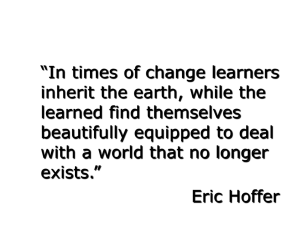
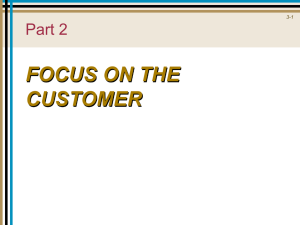
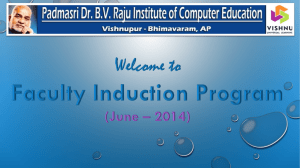
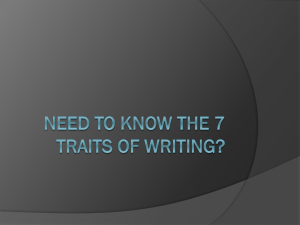
![Some Qualities of a Good Teacher[1]](http://s2.studylib.net/store/data/005352484_1-a7f75ec59d045ce4c166834a8805ba83-300x300.png)
